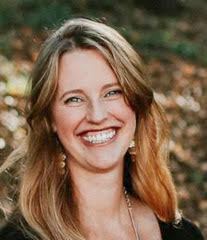|
This post, written by Erin Jantz, originally was published on May 4, 2017, on the ICTG blog. Part of my work as the ICTG Program Director for Spiritual Direction involves researching the past and emerging landscape of trauma-informed spiritual direction in order to develop new tools and programming to assist faith leaders leading congregations after trauma. For example, I am finding fascinating research being done on how spirituality is experienced developmentally, for instance, in a person’s attachment to God. More over, in my travels these days, I am hearing from many field experts who are beginning to turn their scholarly and practical attention to incorporating spirituality into traditional psychotherapy. The goal of this emerging focus is to help survivors in more holistic and multi-dimensional ways. Most recently, I attended a convention addressing complex trauma, which involves affects from ongoing abuse. One of the recognized affects of complex trauma, in particular, is a disrupted belief system. In cases of ongoing abuse, the ways in which persons find meaning become altered, and their senses of spirituality become troubled. Listening to my clinical colleagues wrestle with how to incorporate spirituality into their practices, I was touched by the incredible honor and opportunity that being a spiritual director or clergy member allows when addressing the spiritual needs of a survivor of trauma. After experiencing trauma, in this case, complex trauma, one of the choices a person of faith eventually makes is, “Do I still believe?” One of the challenges clinicians face in addressing this area is incorporating a client’s spiritual practices or in making spiritual recommendations into what clinicians traditionally keep a “values free environment.” Sacred experiences and expressions are so personal and “loaded” for many people that it can feel incredibly tricky to integrate into therapy. As spiritual directors, however, we possess the distinct honor and opportunity of addressing spiritual needs, getting to intimately talk with people about belief and meaning. Broadly, we focus on
Then, from within our own faith traditions, we can
We can do all these things without hesitating to enter in to this sacred space with another. In the same way that I believe a spiritual director or clergy member needs to have a go-to referral list of trusted therapists and others who can help congregants address psychological development needs or critical mental health concerns, I see too how therapists benefit from a reliable referral list of spiritual directors and clergy to partner with in helping clients discern safe places and people with whom they can process their spiritual life. In expanding these types of referral lists, therapists might consider:
And if you are a spiritual director:
As we at ICTG continues to expand programs and tools to support those caring for souls, I find it incredibly encouraging to hear about the research emerging among my colleagues as together we work to create vibrant professional communities committed to whole person health and spiritual care in the light of trauma.
0 Comments
Leave a Reply. |
�
SPIRITUAL DIRECTION BLOG
From 2012-2020, this blog space explored expanding understanding and best practices for holistic health in the context of spiritual direction.
This website serves as a historical mark of work the Institute conducted prior to 2022. This website is no longer updated. Archives
September 2020
Categories
All
|


 RSS Feed
RSS Feed
